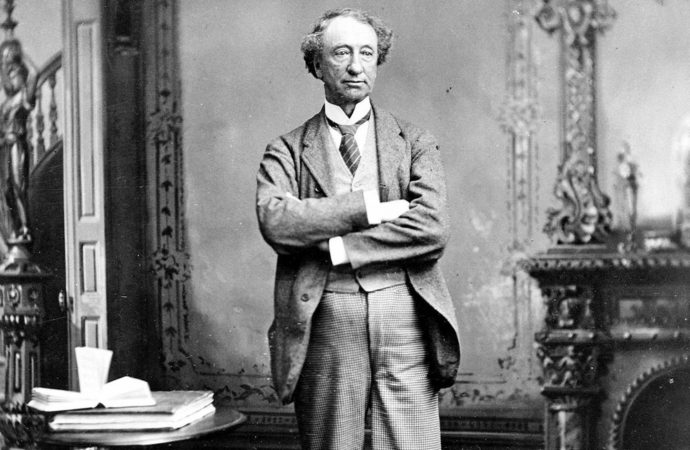
He was a serious racist, a drunk, a political bully and Canada’s first Prime Minister — Sir John A. Macdonald was all of the above.
Under his watch, many moves were made for the fledgling Canadian Dominion making him a hero in the eyes of his fellow Conservatives and, in time, all Canadians.
So why are the many statues of Sir John being defaced and pulled down across Canada?
Maybe it’s the fact that the years and decades-old historical documents are no longer hidden, thanks to the advent of the digital age.
Encouraged by the street protests in the US — Indigenous and Black Canadian activists have turned their frustration towards the Canadian government and its glorification of racist leaders like Macdonald.
Let us point out a few recorded quotes from the lips of Sir John regarding his clearly genocidal policies against Indigenous nations. Macdonald was an equal-opportunity racist. He put unfair policies in place against Chinese Canadians after thousands of Chinese lives were snuffed out building his famous coast to coast railway.
Macdonald was also the architect of the residential school system, which Duncan Campbell Scott perfected some years later.
For this article, we stick to Macdonald’s racism towards the Indigenous populations from Halifax to Vancouver Island — his hunger for their land, and the taxes that a growing flood of European settlers would bring in.
In a letter from 1870 he writes, “We should take immediate steps to extinguish the Indian titles … and open it for settlement. There will otherwise be an influx of squatters who will seize upon the most eligible positions and greatly disturb the symmetry [organization] of future surveys.”
Between 1880 and 1885, the population of Plains First Nations dropped from 32,000 to 20,000, according to analysis by the Cree-Saulteaux academic Blair Stonechild. Most of that was due to starvation while under the care of the Canadian government under Macdonald.
“I saw the gaunt children dying of hunger … although it was thirty to forty degrees below zero their bodies were scarcely covered with torn rags,” the Catholic missionary Father Louis Cochin reported in the winter of 1883 in the Canadian plains.
In 1883, Macdonald introduced his nationwide program of assimilation, but the Liberals pushed back.
“In the (United States) the Indian was the prey of the frontiersman and the cattle driver, in Canada he has been the prey of the government,” said Liberal MP Malcolm Cameron in told the House of Commons in 1886. He accused Macdonald of being “culpably negligent” in his duties to the Indians.
“He (Macdonald) developed the habit of putting aside some of his most challenging files to be looked at later,” wrote historian Donald Smith in an essay on Macdonald’s relationship with Aboriginal Canada. “New incoming files soon buried these old ones.”
Out west, after the kangaroo court proceedings following the Riel rebellion, a number of Riel’s followers were hanged with him in full view of the others to deliver a message.
“The executions of the Indians … ought to convince the Red Man that the White Man governs,” Macdonald wrote to Edgar Dewdney.
“He (Riel) shall die though every dog in Quebec bark in his favour.” This he wrote in 1885, following execution of Louis Riel for treason.
The following recorded statements stand on their own merits, or lack thereof.
In 1880 he wrote, “It is worthy of consideration whether legislative measures should not be adopted for the establishment of some kind of municipal system among such bands as are found sufficiently advanced to justify the experiment being tried. It is hoped that a system may be adopted which will have the effect of accustoming the Indians to the modes of government prevalent in the white communities surrounding them, and that it will thus tend to prepare them for earlier amalgamation with the general population of the country.”
In 1885 he wrote, “…..we have been pampering and coaxing the Indians; that we must take a new course, we must vindicate the position of the white man, we must teach the Indians what law is; we must not pauperise them, as they say we have been doing.”
“I have reason to believe that the agents as a whole … are doing all they can, by refusing food until the Indians are on the verge of starvation, to reduce the expense,” Macdonald told the House of Commons in 1882.
He was transparent about what the future of Indigenous nations was going to be.
In 1887 he wrote, ”The great aim of our legislation has been to do away with the tribal system and assimilate the Indian people in all respects with the other inhabitants of the Dominion as speedily as they are fit to change.”







